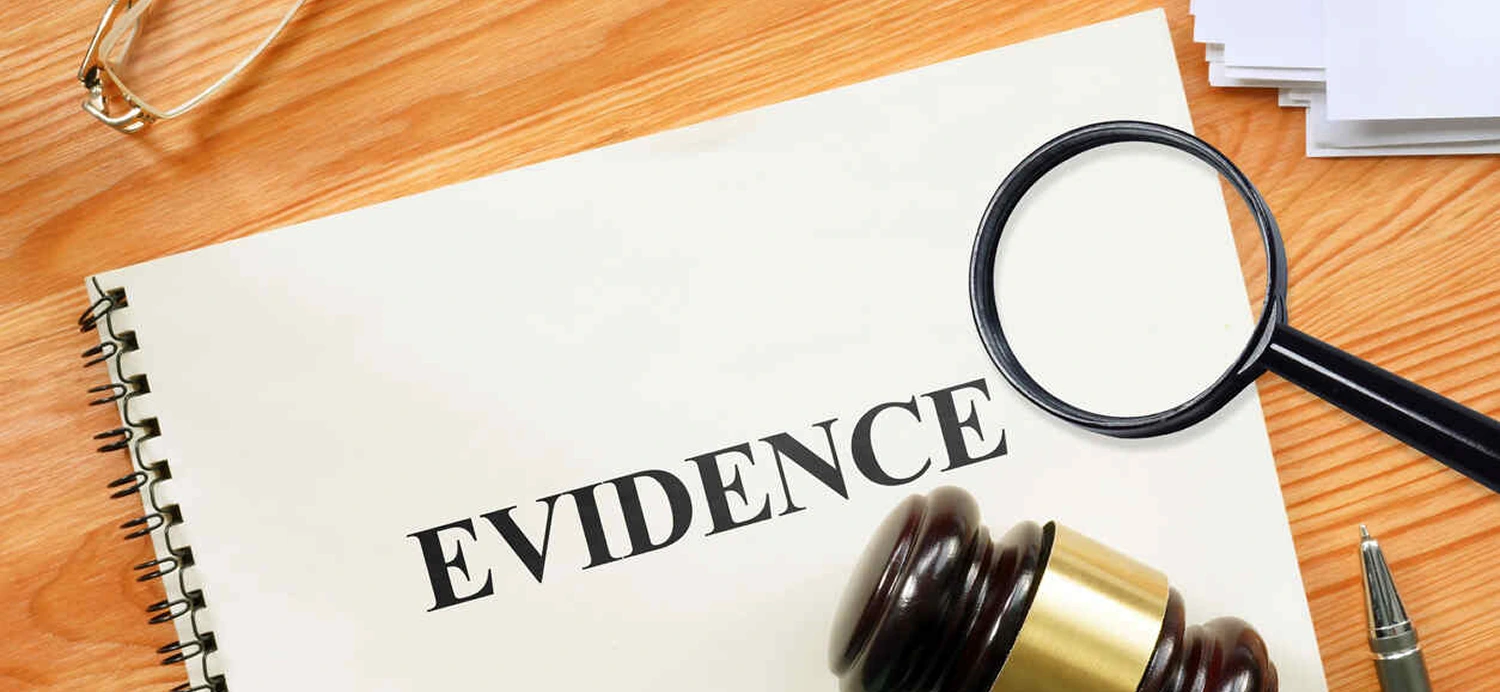- What Is Paraquat and Why Is It So Dangerous?
- The Link Between Paraquat and Parkinson's Disease
- Who Is at Risk?
- What Symptoms Should You Watch For?
- What the Manufacturers Knew
- Your Legal Rights and Potential Compensation
- The Legal Process: What to Expect
- You're Not Alone in This Fight
- Get Your Free, Confidential Case Evaluation
What Is Paraquat and Why Is It So Dangerous?
One of the most commonly used herbicides in the US is paraquat. This chemical is sprayed over millions of acres of American farmland annually to control weeds and grasses. For generations, it has been a key crop-protection tool used by U.S. agricultural operations and farmers to safeguard various crops including soybeans, cotton, orchards and corn.
The fact that may not be widely publicised is that paraquat is so toxic that it has been banned in over thirty two countries, these include countries in the European Union, China and the United Kingdom. Even in tiny doses, a little of this substance is extremely poisonous to man. The EPA mandates that it be coloured blue and mixed with substances that will induce vomiting if swallowed, along with a strong smell.
Despite a history of severe toxicity warnings and international bans, paraquat is still a chemical allowed and extensively used throughout the United States. Individuals who have been in close proximity to it, or those who utilised it in their line of work, are now dealing with severe health problems.
The Link Between Paraquat and Parkinson's Disease
Progressing gradually Parkinson’s disease causes problems with movement, including tremors, stiffness, slowness and balance. Among the symptoms are balance problems, stiffness, slowness and tremors.
In the early stages of Parkinson’s disease the symptoms may be mild but the condition is progressive. Parkinson’s disease is progressive neurological disorder that affects movement. Among the symptoms are balance problems, tremors, slowness and stiffness. Dying dopamine-producing brain cells are responsible for Parkinson’s disease. These cells are responsible for directing body movement. Advanced MS results in loss of physical capabilities and can result in individuals losing the ability to look after themselves and consequently affecting their lifestyle.
Scientists have been researching Parkinson’s disease for decades in order to understand the reasons behind this condition. Genetic factors do contribute in some instances, however evidence suggests environmental factors have a considerable impact. The evidence linking paraquat to the high incidence of illness is now overwhelming.
Research has shown that those who come into contact with paraquat have a significantly elevated risk of contracting Parkinson’s disease. In fact, their risk is often two or three times higher than for people with no exposure to the chemical. The phenomenon in question is one that numerous studies by leading authorities have noticed over time.
It makes sense that there is a biological mechanism behind the effects of paraquat. This is because paraquat has a chemical composition which closely resembles MPP+ – a compound known to induce Parkinson’s disease-like symptoms through the killing of dopamine producing cells in the brain. Scientific research has discovered that the toxic substance paraquat is able to cross the brain’s protective blood-brain barrier and can even build up in the brain regions that are damaged by Parkinson’s disease.
Minimal radiation exposure can be detrimental. The risk wasn’t limited to individuals who had drunk large quantities of the poison or who had experienced the chemical’s effects through a spill of the substance. Research has shown that spraying pesticides can greatly raise a person’s risk of contracting Parkinson’s disease, especially if they inhale pesticide drift, operate contaminated machinery or live near sprayed fields.
Who Is at Risk?
People who spray or handle paraquat for their job could be exposed to the chemical in dangerous quantities. The workers involved include professional applicators of the herbicide, farm workers and agricultural workers. Farmers are also at risk as they use the product on their lands.
Those who use or have paraquat sprayed on their farms are particularly at risk. Research has found that even if protective gear is worn, workers may still be exposed to hazardous levels of the chemical, particularly if their occupation involves long-term agricultural work.
Farmers and agricultural workers – crop dusters and farmhands for instance – who mix, apply or load paraquat have come into direct contact with the chemical.
Those who worked in horticulture or public works and have used paraquat on a regular basis for vegetation control may have experienced repeated exposure.
Those living or working close to sprayed land may also be at risk. Sprays of paraquat can travel long distances from the area where it was applied, threatening the health of those nearby, particularly rural farm dwellers. People who grew up in rural areas may have been exposed to this pesticide without their knowledge. This could include individuals who resided on or near farms or who worked in regions adjacent to agricultural land.
One of the particularly damaging features of paraquat is that its victims often unwittingly harmed themselves. In the normal course of events, you would be going about your daily life. This could be tilling your soil, working your land or continuing your daily routine within your community. At the time, there was no reason to believe that exposure to this widely used agricultural chemical could lead to a debilitating neurological condition many years after exposure.

What Symptoms Should You Watch For?
The condition of Parkinson’s disease is one that shows its symptoms over a period of time, the early signs being slight but growing in severity. These symptoms can be early warning signs of a heart attack:
- Tremors or shaking, usually starting in one hand
- Slowness of movement and difficulty initiating movements
- Rigid or stiff muscles
- Impaired balance and coordination
- Changes in speech, including softer voice or slurred speech
- Changes in writing, with handwriting becoming smaller
Many of the automatic movements, such as those governing eye-blinking or smiling, are lost.
- Loss of facial expressions, especially a neutral or less expressive face.
- A less expressive voice or lack of emotional tone.
- Stooped posture or shuffling walk
Individuals with Parkinson’s disease who have been exposed to paraquat may not be victims of circumstance. Numerous individuals fail to connect the onset of Parkinson’s disease to chemical exposures at work or in the environment and mistakenly assume it is merely the result of genetic predisposition.
What the Manufacturers Knew
In particular, the grounds of this legal case are well-supported by evidence showing that producers of paraquat were aware of the connection to Parkinson’s disease long before other people. These companies’ internal records, plus the research they have conducted or commissioned, suggest that the products were placed on the market before the long term effects of asbestos were known. The timeline of when asbestos-related health problems were identified versus when these companies informed the public of these risks raises questions about whether their priority was profit over people.
It is worrying that many other countries have already banned the use of paraquat because of safety reasons yet, in the United States, it continues to be available for purchase. Were they aware the level of lead in the paint was hazardous to people in other countries, but acceptable for American workers and children?
The makers of chemicals have an obligation to test their products, to know about any risks and to make users aware of any hazards involved. Companies which do not conform to such high standards and as a consequence people suffer serious health effects must be made accountable.

Your Legal Rights and Potential Compensation
If you developed Parkinson’s disease after being exposed to paraquat, you may be entitled to substantial compensation for:
Taking into account potential expenses including the fees for doctors’ visits to determine a diagnosis, costs of trips to see a neurologist, various prescription medications which are often very costly for Parkinson’s disease sufferers, also the fees for physical therapy, for occupational therapy and for any other treatments you have required or might possibly require in the future.
As Parkinson’s disease progresses, patients will require ongoing care and treatment. The intensity of treatment will increase over the patient’s lifetime.
Parkinson’s may have necessitated you cutting back on the number of hours you work, quitting your job, or switching to a different type of employment. In its early stages, this illness frequently attacks people who are economically active, thereby reducing their earning potential over many years.
As Parkinson’s disease advances the costs incurred by the caregiver in relation to personal care, household chores and other daily activities increase. Ultimately, in-home or residential care may be needed.
Those who suffer from degenerative neurological diseases undergo not just a decline in physical health but also endure emotional and mental pain.
Parkinson’s impacts all areas of a person’s life, influencing their daily routines, including employment, leisure activities and hobbies, personal care and independence.
The loss suffered by a spouse as a result of the injury or death of the other spouse is known as loss of consortium. This loss is generally defined as the denial of companionship, comfort, care, maintenance, assistance, and society that the injured spouse would have received from their partner if they had not been hurt.
The amount of compensation you can claim for Parkinson’s disease will depend on several factors. These include the age at which you were diagnosed, the extent to which your daily life has been affected by the condition, and your medical history.
The Legal Process: What to Expect
Cases alleging injury caused by the weed killer Paraquat have been transferred to a federal courthouse in Chicago for a multidistrict litigation. This is advantageous to claimants because it enables them to pool their resources, to share evidence and to coordinate their legal strategies against the manufacturers who have considerable financial backing.
Together you will work with an experienced mass torts lawyer who has a specialisation in cases of toxic poisoning. With their extensive experience and access to skilled expert witnesses and the latest information on chemical industry practices, these lawyers have what it takes to tackle massive chemical corporations. On your behalf, experts will consult with medical professionals about your condition, gather records of your treatment and obtain information about how you became ill, and then use this information to build a strong case.
They usually represent clients on a contingency fee basis; this means the law firm will receive payment only if they win a settlement for you. You won’t have to pay them any fees in advance. Those with limited financial means are not restricted from acquiring first-rate legal advice.
The time to act in regard to your social security benefits is limited; therefore, it is crucial that you file your application immediately. If you miss the deadline for filing then your claim may be denied.
The time limit for filing a lawsuit due to exposure to paraquat is governed by a statute of limitations. The time limits for applying for compensation vary depending on the state in question and can be intricate to calculate. By the end of the deadline, it may be too late to make a claim for damages.
As time progresses, it often becomes harder to gather proof. As time passes, it becomes increasingly difficult to gather employment information, medical records, witness statements and details of spraying areas and dates. The sooner you consult with a lawyer, the better they will be able to safeguard your rights and construct the strongest case possible.

You're Not Alone in This Fight
Suffering from Parkinson’s disease is daunting and also taxing enough without the added stress of dealing with an administrative legal system. People living with Parkinson’s experience physical as well as mental exhaustion due to factors such as medication routines, tremors, loss of independence and their doctor’s visits. Having to deal with a court case should not be something you also have to face without anyone to turn to.
The reasons for involving an attorney with extensive experience are so important. With the aid of a lawyer, you can focus on your health and well-being while they tackle any legal issues which have arisen. With our expertise, you’ll be free to enjoy precious time with your family while we fight to get you the compensation you’re entitled to.
Get Your Free, Confidential Case Evaluation
Those suffering from Parkinson’s disease and who also have a history of paraquat poisoning should determine if they have a valid claim. It costs nothing to engage the services of a solicitor in a free consultation and this meeting does not commit you to taking further action with that lawyer. Being in this situation is a valuable chance to become familiar with the rights which are yours and the possibilities available to you.
A discussion of your personal history of exposure to Parkinson’s disease, the diagnosis of the condition and how your life has been affected by Parkinson’s will be included in this meeting. Following a discussion with an attorney, they will advise on whether you qualify for a case and what steps will be involved. You will receive the answers you are seeking and the data required to make an informed choice.
It was you who dedicated years of your life to supporting your family and contributing to your community. They also didn’t know that the chemicals to which they were exposed could result in a debilitating neurological disorder. You have every right to demand accountability from the manufacturers and sellers of paraquat who may have been aware of its dangers but chose not to inform the public.
There are companies that are putting profits above the welfare of human beings. You should not go unnoticed for all the pain you’ve endured. First consider seeking a no charge case review to initiate the process that could lead to you receiving what you are legally entitled to. Your voice, your story and the impact of these corporations will be heard. It’s for yourself, but also for everyone who has been harmed by paraquat poisoning.
